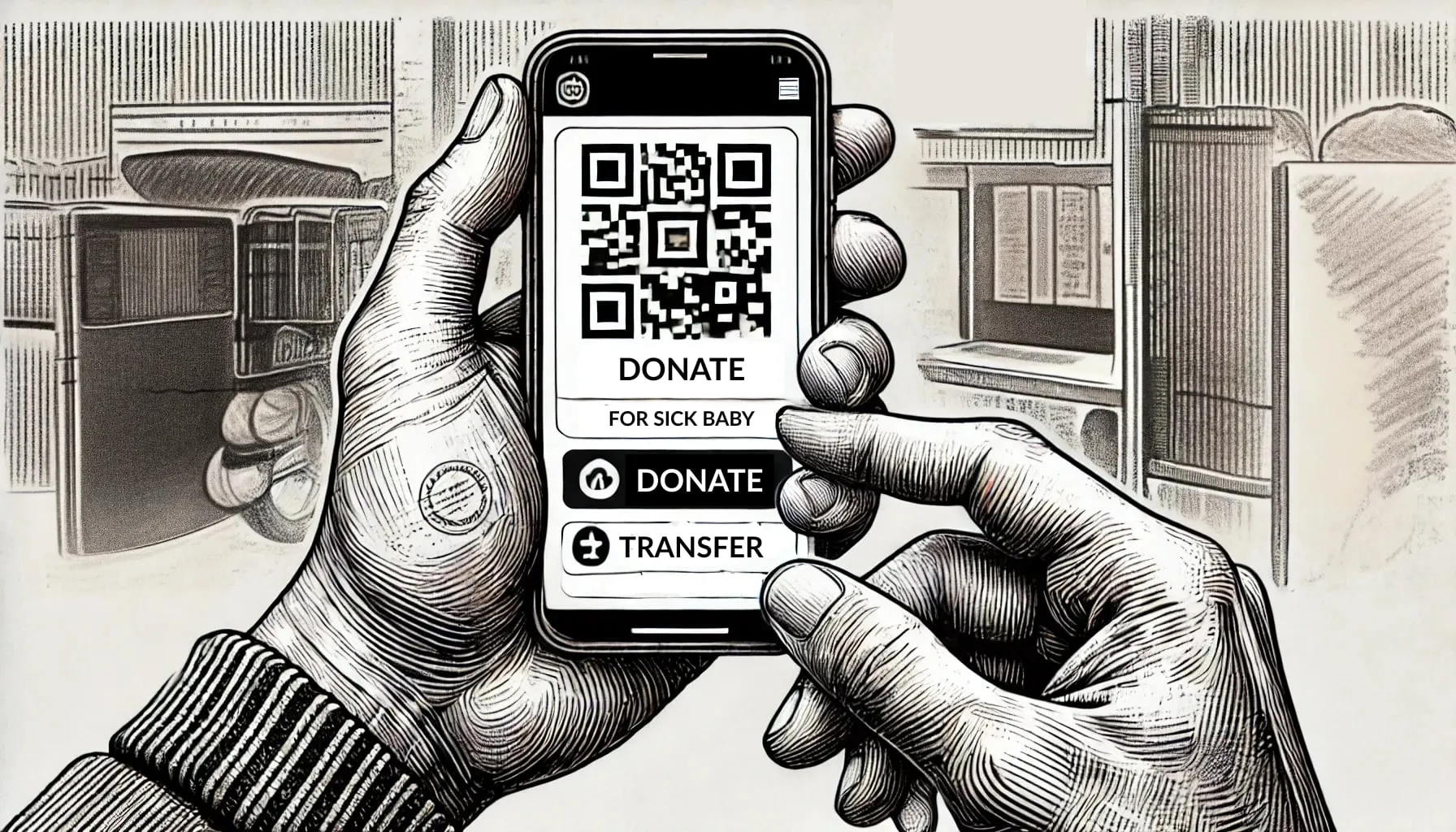Donate from the heart, but where did the money go?
Welcome to Words on the Street, where daily news stories lead to deeper exploration of important issues.
THE HANOI TIMES — Compassion is inherent in human beings. The Vietnamese people are no exception. A story of hardship shared online is often met with a generous response. In today's digital world, where bank transfers take seconds, doing good has never been easier. But that very convenience - and our willingness to believe - can also leave the door open to troubling situations.
Our case involves two cyber sensations: Baby Bap's mother and Pham Thoai. On the one hand, a mother begged for help to save her son from a serious illness. On the other, an Internet celebrity reacted with a heartfelt gesture, using his influence to ask the community for donations. Within days, VND16 billion (US$620,000) had been raised. But people's legitimate demand for an account of how the money was spent was met with vague or nonexistent responses.
This isn't the first time the public has felt that their good will has been abused. For years, soliciting donations through personal social media accounts has been a source of suspicion. Each time, the public's trust is shaken a little more. And the next campaigns to raise money to help the needy would be in doubt.

Why are we so gullible? A familiar face says a few heartfelt words, a moving story is told, and the money is sent almost immediately. The giver expects nothing in return. The recipient offers no explanation. By the time questions are asked, the damage is done and trust is hard to rebuild.
This moment should make us think more carefully. Giving should be based not only on emotion, but also on reason. In an age when online stories can be either fabricated or misleading, sending money to a stranger - even a famous one - carries the risk of losing it. Good intentions must be paired with information.
This reminds me of a major incident last year when the Vietnam Fatherland Front released a 13,000-page statement on donations collected to help the victims of Typhoon Yagi. Instead of reassuring the public about the whereabouts of the money, it left people confused. Some pages showed very small amounts from certain groups or fan pages, much less than they had pledged.
These groups had asked their followers to join hands to help the storm victims. They spoke of unity and caring. People believed them, sent money, and hoped for the best. But when the report came out, many were left with one big question: "What really happened to the money we gave them?"
This shows how weak online accountability can be. Even if someone has millions of followers, once they log off, there's no way for us to know what's really going on behind the screen. We can't follow the money if they don't want to explain.
In cases like Pham Thoai's and Baby Bap's mother's, the people who received the donations must be honest and transparent about how the money was used. Vietnamese law already requires this. According to Decree 93/2019/ND-CP, anyone who solicits donations must clearly report and explain how the funds are managed and spent.
At the same time, donors need to be more thoughtful. It's time to channel our support through trustworthy organizations that can be audited and monitored. Groups like the Vietnam Fatherland Front, the Red Cross, SOS Children's Villages, or the Saigon Children's Charity don't just collect money; they make sure it gets to the right hands.
This case also shows that our government has an important role to play. Instead of just stepping in when problems arise, authorities should be more active in monitoring online fundraising campaigns. There should be simple rules: if someone wants to raise money from the public, they need to make their plans transparent from the start.
And let's not forget the role of the media. News outlets need to do more than report scandals. They should help protect the public by digging into the shady fundraising stories and giving people the tools to understand their rights. The media should help readers tell the difference between real charity work and emotional tricks used to raise money.
Rather than waiting for things to go wrong, the press can lead the way in raising public awareness. They can show people how to give safely, how to check for evidence, and how to choose trustworthy organizations. Information is as important as kindness when it comes to giving.
Let this be the last time we give away both money and trust thoughtlessly. Money can be lost and regained. But regret, once it comes, stays with us for a long time. A simple receipt is not just a number, it is proof that our kindness went to the right place and our trust was not misplaced.












